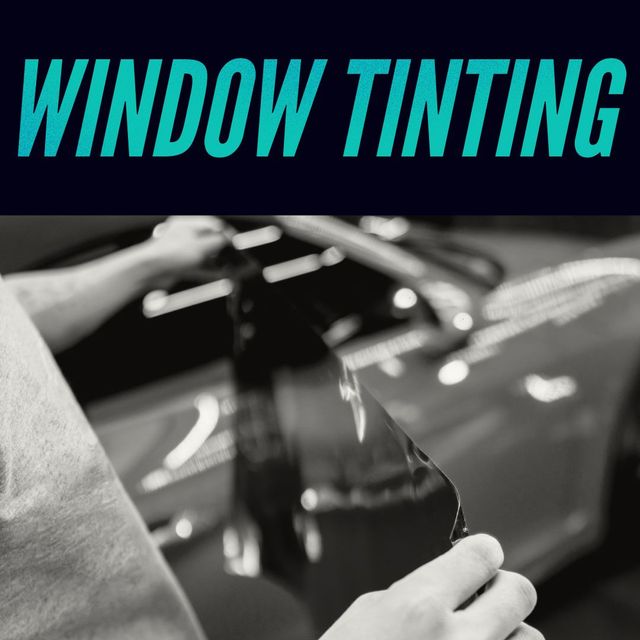Automobile Window Tinting: Locate the most effective Bargains and Quality Services Nearby
Automobile Window Tinting: Locate the most effective Bargains and Quality Services Nearby
Blog Article
Window Tinting Rules and Guidelines: What You Required to Know Prior To Tinting Your Automobile
Prior to continuing with home window tinting for your lorry, it is essential to familiarize yourself with the diverse legislations and guidelines that regulate this method across various states. These regulations determine the permitted degrees of color darkness, typically gauged by visible light transmission (VLT) percentages, and consist of certain terms for front windshields aimed at making sure road safety and security.
Overview of Home Window Tinting Laws
Window tinting laws are frequently based on variation across various jurisdictions, reflecting neighborhood policies and safety and security considerations. These legislations determine the permissible degrees of tint darkness and reflectiveness on car home windows, making certain that chauffeurs preserve ample visibility while also safeguarding against dangerous UV rays and heat.
A lot of policies identify window tinting based on the Visible Light Transmission (VLT) percent, which indicates the quantity of light that can travel through the home window. Normally, lower VLT portions symbolize darker colors. Legislations frequently differentiate in between the front, side, and back home windows, with stricter restrictions used to the front windshield to enhance security for both the driver and various other roadway customers.
Compliance with home window tinting guidelines is vital, as infractions can result in penalties, compulsory elimination of the color, and potential boosts in insurance policy premiums. It is necessary for vehicle owners to acquaint themselves with local laws prior to proceeding with home window tinting installments.
State-by-State Tint Rules
Recognizing the details window tinting guidelines in each state is essential for car proprietors looking for to follow the regulation. Each state in the united state has actually established its very own collection of guidelines controling home window tinting, which can vary considerably. These laws typically determine the allowable levels of tint darkness, the types of windows that can be tinted, and any medical exemptions that may use.
For circumstances, states like California have stringent limitations on tint darkness for front home windows, while others, such as New Mexico, might permit darker tints. In addition, specific states mandate particular exposure percentages for different home windows, consisting of the windscreen, front side windows, and back home windows. It is vital for car owners to familiarize themselves with their state's regulations to avoid prospective fines or penalties.
Additionally, some states might call for a certification sticker to be put on tinted windows, indicating conformity with state legislations. Failing to abide by these laws not just runs the risk of legal repercussions however can also impact safety and visibility while driving. Vehicle proprietors should perform complete study or get in touch with regional authorities to ensure complete understanding and compliance with state-by-state color guidelines.
Allowed Color Kinds and degrees
Several car proprietors might be stunned to discover that enabled tint levels and types differ commonly throughout various states. Each state has established its very own regulations relating to the permissible darkness and reflectivity of window color, typically gauged by Visible Light Transmission (VLT) percentages. VLT describes the amount of light that can pass through the colored windows; hence, a lower percentage shows a darker look what i found color.

Additionally, the sorts of color products enabled can vary, with some states prohibiting metallic or mirror-like surfaces. It is crucial for lorry owners to familiarize themselves with their state's particular legislations to ensure compliance. Non-compliance can lead to fines, required elimination of the color, or other lawful effects, making it essential to recognize these laws prior to continuing with installment.
Medical Exceptions for Tinting
While not all states give allocations for medical exceptions pertaining to window tinting, those that do identify the need for specific individuals to improve exposure and comfort because of medical conditions. Different medical problems, such as lupus, skin cancer, and particular eye disorders, can make individuals particularly sensitive to sunlight. These individuals may call for darker colors to safeguard themselves from harmful UV rays and glare.

It is necessary to note that despite a their website medical exemption, there might still be limitations on the degree of tint permitted. Conformity with pop over to this web-site state laws makes certain that individuals are both safeguarded and within lawful limitations. Those thinking about medical exceptions must contact their regional Department of Electric motor Vehicles or comparable authority to comprehend the needs and treatments required to obtain an exception successfully.
Penalties for Non-Compliance
Stopping working to abide by window tinting legislations can result in considerable charges, which differ by state. Police are encouraged to issue citations for vehicles that do not stick to the specified tinting regulations. These charges generally consist of fines, which can range from moderate amounts to several hundred dollars, relying on the seriousness of the offense and the state in concern.
In some jurisdictions, repeated offenses may cause escalating fines or added charges, such as compulsory court appearances. Moreover, non-compliance may necessitate the removal of prohibited tinting, typically at the owner's cost. In severe instances, regular offenders might deal with suspension of their lorry registration up until conformity is attained.
In addition, insurance coverage implications might arise from getting several citations for home window tint violations. Insurers might see such violations as an indicator of riskier habits, possibly resulting in boosted premiums or problem in insurance coverage.
To avoid these fines, it is essential for automobile proprietors to familiarize themselves with their local window tinting legislations and ensure that their car complies (Window Tinting). This positive approach not just prevents lawful ramifications but likewise advertises roadway safety
Final Thought

A lot of laws classify window tinting based on the Visible Light Transmission (VLT) portion, which suggests the amount of light that can pass through the home window. Compliance with window tinting policies is important, as infractions can result in penalties, required elimination of the tint, and possible boosts in insurance coverage costs.Comprehending the particular home window tinting policies in each state is essential for car proprietors seeking to conform with the regulation. These regulations frequently determine the allowed degrees of color darkness, the kinds of windows that can be tinted, and any kind of medical exemptions that might apply.
For circumstances, states like The golden state have strict restrictions on color darkness for front windows, while others, such as New Mexico, might permit darker colors.
Report this page